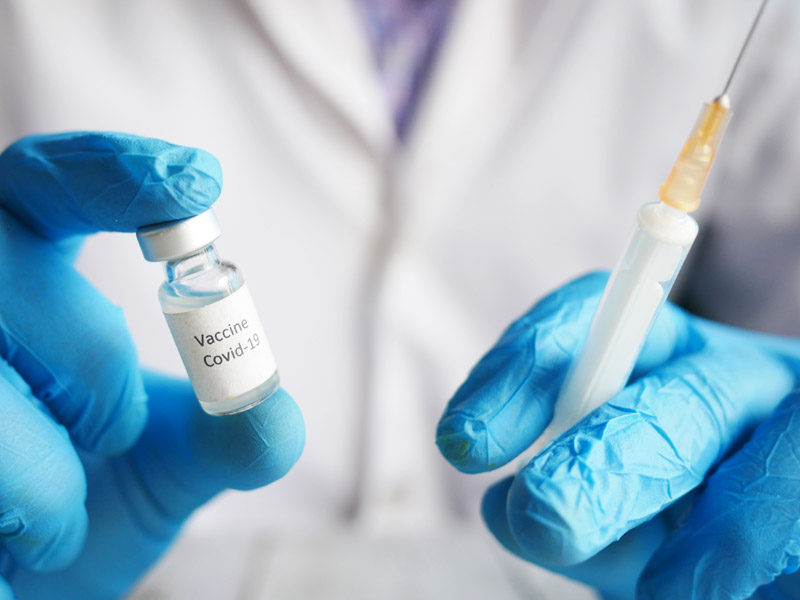
The highly transmissible Omicron COVID variant is spreading fast in India. From 213, the count jumped to 341 in a day on Thursday, recording a jump of 84 cases. This is how transmissible this new ‘variant of concern’ is. Another thing about Omicron is that it has been shown to evade the immune response generated by various COVID vaccines. Pharmaceuticals firms Pfizer, Moderna, and AstraZeneca have reported such a drop in the protection offered by their COVID vaccines. A glimmer of hope, however, amid all the gloom around Omicron is that the booster doses of these vaccines generate significant immune responses against the new variant. Moderna and AstraZeneca have said their booster doses work just as well as the two vaccine doses do against other variants. Several countries are administering COVID vaccine booster doses to their population. The Indian government is yet to make any such announcement. With the threat of Omicron looming large, is it the right time for India to begin administering the booster doses? To get an answer to this question, Onlymyhealth spoke to Dr Rajeev Gupta, Internal Medicine, CK Birla Hospital, Delhi.
Table of Content:-
Should India Consider Boosters Of COVID Vaccines?

(Photo Credit: Unsplash)
The Omicron variant is spreading in India. This mutation of the novel coronavirus, which causes COVID-19, may not be covered well by previous vaccination as well as infection, Dr Gupta said. The vaccination and natural infection immunity protection decrease in three-six months and the efficacy of the Moderna and Pfizer vaccine goes down by 70%.
Hence, “there is an urgent need for boosting immunity and for the time being, boosters can help in tackling the pandemic situation,” the doctor said. This is because boosting your immunity against COVID reduces the chances of having severe infections and dying because of the virus.
Also read: Moderna's COVID-19 Vaccine Booster Shows Effectiveness Against Omicron
Booster Doses: How Do They Work?

(Photo Credit: Unsplash)
Getting vaccinated is crucial to warding off severe COVID infections. This can be highlighted by the fact that during the second COVID wave in India, a large number of COVID-related deaths were reported among the unvaccinated populace. However, the vaccine’s effectiveness has always been a question as omicron and delta variants spread more easily as compared to the original SARS-CoV-2 virus. Also, it doesn’t provide 100% protection, and its efficacy decreases over time. This is why booster doses are recommended. It’s because they boost your immune response against the pathogen.
While assessing the antibody response to the virus, an important parameter is through T-cell response.
- T-Cells have mediated immunity memories, which after receiving an additional dose get boosted, Dr Gupta explained.
- This, in turn, reduces the impact of the virus.
- So, when a body receives a booster, the antibody response rarely goes down, he added.
Also read: Lower Risk Of Hospitalisation With Omicron VS Delta? South Africa Experience
Who Should Be The First Ones To Get Boosted?
For booster shots, the priority groups should include:
- The immunocompromised people
- Those suffering from liver ailments, renal failures, HIV, and other comorbidities
- Healthcare workers
- Frontline workers
The virus tends to mutate faster in these people, said Dr Gupta.
- However, the primary goal should be to ensure complete vaccination (two doses) for the entire population.
- After that, people should be given booster doses. “The government is already in the policy-making phase and we must start the boosters for target populations who are at higher risk,” the doctor said.
- However, any person above the age of 18 should get a booster dose, either of the same vaccine or different hybrid vaccines that are available.
- Eventually, the boosters should be available for everybody and should be given every 6 months for the next three-four years because this virus is going to gradually become endemic, Dr Gupta explained.
Other than vaccination, you shouldn’t quit following the COVID-appropriate behaviour. Hence,
- Wear your mask.
- Practice social distancing
- Ensure sanitisation
- Get vaccinated
- Avoid closed-door meetings as much as you can.
Dr Gupta also highlighted the need to focus on family immunity, which is different from population immunity. In family immunity, suppose five of the seven family members are vaccinated. Hence, the rest will be automatically protected because they are sharing the same internal environment, the doctor explained. This way the immunising of other members can protect the younger individuals in the family. This will ensure the use of vaccines in a more logistical way.
(With inputs from Dr Rajeev Gupta, Internal Medicine, CK Birla Hospital, Delhi)
Photo Credit: Unsplash
Also watch this video
How we keep this article up to date:
We work with experts and keep a close eye on the latest in health and wellness. Whenever there is a new research or helpful information, we update our articles with accurate and useful advice.
Current Version